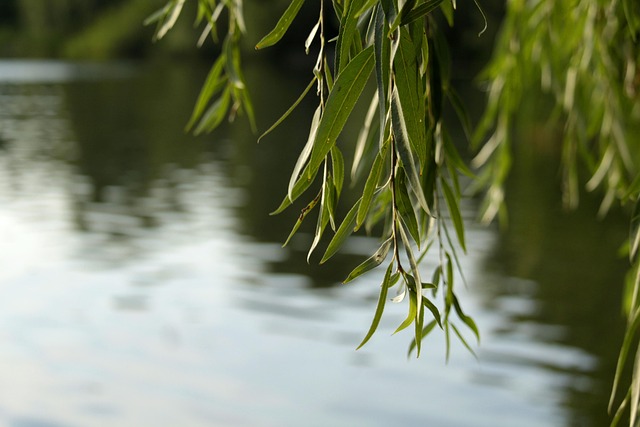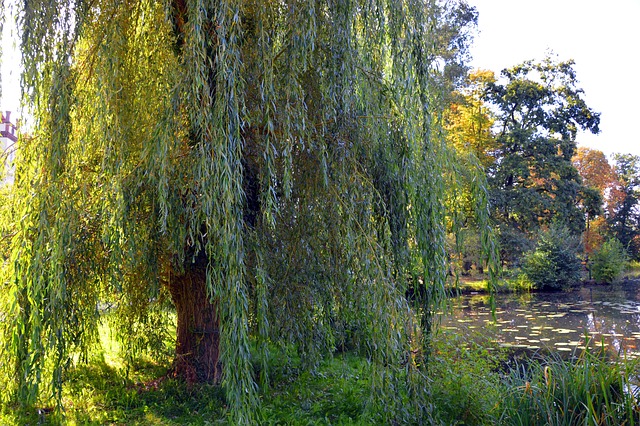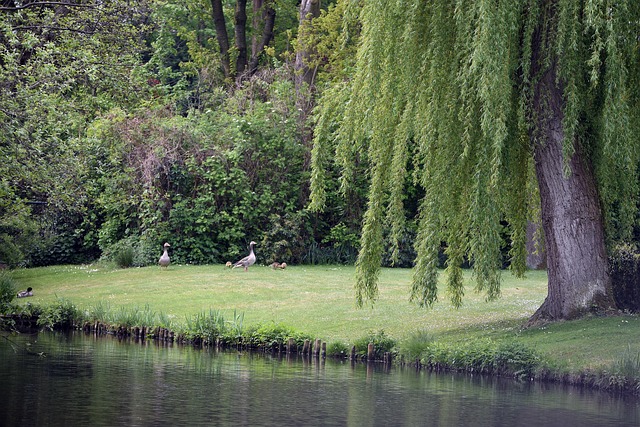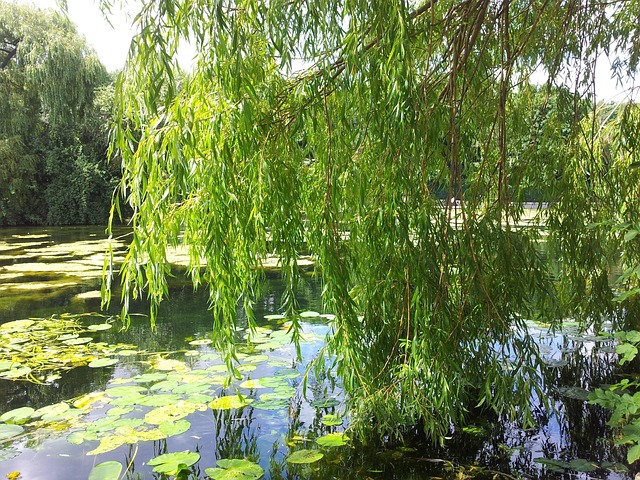Have you ever had a stroke of luck that you tried to recreate, only to find that lightning doesn’t strike twice? This universal experience is beautifully captured in the traditional Japanese proverb “Yanagi no shita ni itsumo dojou wa oranu” (柳の下にいつも泥鰌はおらぬ) – which literally means “There isn’t always a loach under the willow tree.” This charming expression teaches us about the dangers of relying on past good fortune rather than putting in consistent effort. In this article, we’ll explore the rich meaning behind this proverb, its cultural context, and how its wisdom applies to both gardening and modern life!
Understanding the Japanese Proverb “Yanagi no Shita”

What are Japanese Proverbs?
Japanese proverbs, known as kotowaza (ことわざ), are short, memorable expressions that convey traditional wisdom and life lessons. Similar to proverbs in Western cultures, these sayings often use metaphors from nature and everyday life to communicate deeper truths. Japanese kotowaza frequently reflect the country’s agricultural heritage, close relationship with nature, and philosophical traditions.
The Literal Meaning
Breaking down the proverb:
- Yanagi (柳) refers to willow trees, which commonly grow near water in Japan
- Shita (下) means “under” or “beneath”
- Dojou (泥鰌) is a small, eel-like fish called a loach that lives in muddy bottoms of ponds and streams
- Oranu (おらぬ) is an old way of saying “is not present” or “does not exist”
Put together, it simply states that you can’t always expect to find a loach under a willow tree.
The Deeper Wisdom
The true meaning of this proverb goes far beyond fishing advice. It teaches us several important life lessons:
- Don’t rely on chance success: Just because something worked once by luck doesn’t mean it will work again
- Avoid assuming patterns: Don’t mistake a one-time coincidence for a reliable pattern
- Put in consistent effort: Rather than counting on fortune, make your own success through diligence
- Stay adaptable: Conditions change, so your approach should too
Imagine going fishing and catching a big fish under a willow tree. If you return to the exact same spot expecting the same result, you might be disappointed! This simple observation from nature became a profound lesson about life and success.
The Cultural Elements: Willows and Loaches in Japan
The Significance of Willow Trees
Willow trees hold a special place in Japanese culture:
- They’re often found along riverbanks and near water sources
- Their graceful, drooping branches create beautiful scenery
- The most famous variety is the weeping willow (しだれ柳, shidaré yanagi)
- They appear in many Japanese poems, paintings, and gardens
- Willows represent flexibility and resilience because they bend in strong winds rather than breaking
The space beneath a willow’s branches creates a shady, sheltered area – perfect for small creatures like fish to hide.
What is a Loach?
For those unfamiliar with Japanese aquatic life, a loach (dojou) is:
- A small, slender fish about 10-15 cm long
- Known for living in muddy environments
- Able to move quickly and burrow into mud when startled
- Traditionally used in Japanese cooking (especially in a dish called “dojou nabe”)
- Difficult to catch due to its speed and ability to hide
Loaches are masters of evasion and unpredictability – making them the perfect metaphor for things we can’t rely on happening again.
The Relationship Between Willows and Loaches
Why are willows and loaches paired in this proverb? There are several natural reasons:
- Willow trees often grow near water where loaches live
- The shade from willow branches creates good hiding spots for fish
- Finding a loach under a specific willow would be somewhat random
- The drooping branches of willows create complex shadows on the water, making it hard to see fish consistently
This natural relationship created the perfect metaphor for something that happens by chance rather than by design.
The Origins and Background

Historical Context
While we don’t have records of exactly when this proverb originated, it likely emerged during the Edo period (1603-1868) when many Japanese proverbs were formalized. During this time:
- Many Japanese lived in agricultural communities
- People relied heavily on nature for survival
- Fishing was an important source of food
- Observation of natural patterns informed daily life
People would have directly experienced the unpredictability of finding fish in the same spot day after day, making this proverb relatable and practical.
Japanese Views of Nature
This proverb reflects traditional Japanese perspectives on nature:
- Nature is seen as dynamic and ever-changing
- Humans must adapt to nature rather than control it
- There’s beauty in accepting impermanence
- Careful observation of natural patterns leads to wisdom
- Success comes from working with nature’s rhythms, not fighting against them
These philosophical views shaped how Japanese people approached challenges and setbacks, emphasizing resilience and adaptability.
Similar Expressions Around the World
Western Equivalents
Different cultures have similar expressions that capture this wisdom:
| Japanese Proverb | Western Equivalent | Meaning |
|---|---|---|
| Yanagi no shita ni itsumo dojou wa oranu | Lightning never strikes twice in the same place | Good fortune doesn’t repeat in exactly the same way |
| A fox is not caught twice in the same snare | Don’t expect the same trick to work repeatedly | |
| Don’t put all your eggs in one basket | Don’t rely on a single approach or opportunity |
Contrasting Perspectives
Interestingly, some proverbs seem to contradict this wisdom:
- “Lightning never strikes twice in the same place” (similar to our Japanese proverb)
- VS.
- “History repeats itself” and “Third time’s a charm“
This apparent contradiction teaches us something important: different situations call for different wisdom. When dealing with:
- Random chance and luck: Don’t expect repetition (yanagi no shita)
- Human behavior patterns: Expect some repetition
- Mistakes and learning: Look for improvement through repetition
Cultural Comparisons
Across cultures, we find fascinating differences in how proverbs approach luck and success:
- Japanese proverbs often emphasize observation, patience, and harmony with nature
- Western proverbs frequently focus on individual action, persistence, and control
- Chinese proverbs tend to highlight balance, timing, and strategic thinking
Yet despite these differences, the core wisdom about not relying on chance success remains universal!
Modern Applications

In Business and Relationships
This ancient wisdom applies perfectly to modern challenges:
- Business: Don’t assume a successful marketing campaign will work equally well next time
- Investment: Past performance doesn’t guarantee future results (as financial advisors always warn!)
- Innovation: What worked in yesterday’s market might not work in today’s
- Relationships: Techniques for connecting with one person might not work with another
Modern example: A company might find viral success with one social media post, then try to recreate that exact same format repeatedly without the same results. This is a classic case of looking for a loach under the same willow tree!
In Gardening and Plant Care
For flower enthusiasts and gardeners, this proverb offers valuable perspective:
- Just because a plant thrived in one location doesn’t mean its clone will do equally well
- Each growing season brings different weather conditions requiring different care approaches
- A successful flower arrangement can’t be exactly duplicated because each flower is unique
- What works for one plant variety won’t necessarily work for another, even if they seem similar
Gardening wisdom: Even with identical seeds, soil, and care, plants may grow differently each season due to subtle environmental changes. Good gardeners observe and adapt rather than rigidly following last year’s methods.
In the Digital Age
Even in our technology-driven world, this ancient wisdom remains relevant:
- Social media: Viral content success is rarely repeatable with the same formula
- Technology: Solutions that worked for one generation of problems may not work for the next
- Career development: Skills that were valuable yesterday might be obsolete tomorrow
The rate of change has accelerated, making the lesson of “yanagi no shita” even more critical today than when it was first observed!
Learning Wisdom from Nature
Japanese Nature-Based Philosophy
Japanese culture has long drawn wisdom from careful observation of the natural world:
- The concept of mono no aware (物の哀れ) – appreciating the beautiful impermanence of things
- Wabi-sabi (侘寂) – finding beauty in imperfection and transience
- Shizen (自然) – naturalness and the value of things as they are
- Ecological awareness – understanding interconnections in nature
These philosophical approaches teach us to embrace change rather than resist it – exactly the lesson of our willow and loach proverb!
Applying These Lessons to Flowers and Plants
For flower lovers, these nature-based insights offer beautiful guidance:
- Appreciate each bloom’s uniqueness rather than trying to force uniformity
- Work with a plant’s natural tendencies instead of fighting against them
- Embrace the seasons of growth and rest as natural cycles
- Learn from unexpected results rather than seeing them as failures
The most beautiful gardens and arrangements often come from observing what works naturally in your specific environment, not from rigidly following formulas or expecting identical results every time.
Conclusion
The wisdom of “Yanagi no shita ni itsumo dojou wa oranu” reminds us to avoid over-relying on past success and instead stay adaptable, observant, and persistent. This charming Japanese proverb, drawn from observations of willows and fish, teaches us lessons that remain profoundly relevant in our modern world.
Whether you’re growing flowers, building a career, or navigating relationships, remember that conditions constantly change. Instead of looking for loaches under the same willow tree, develop the skills to find them wherever they may be!
By embracing change, putting in consistent effort, and staying present to current conditions rather than past patterns, we can apply this ancient wisdom to create more beautiful gardens, more successful lives, and more resilient spirits. Isn’t it amazing how much wisdom can come from simply watching fish and trees?


